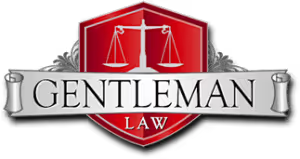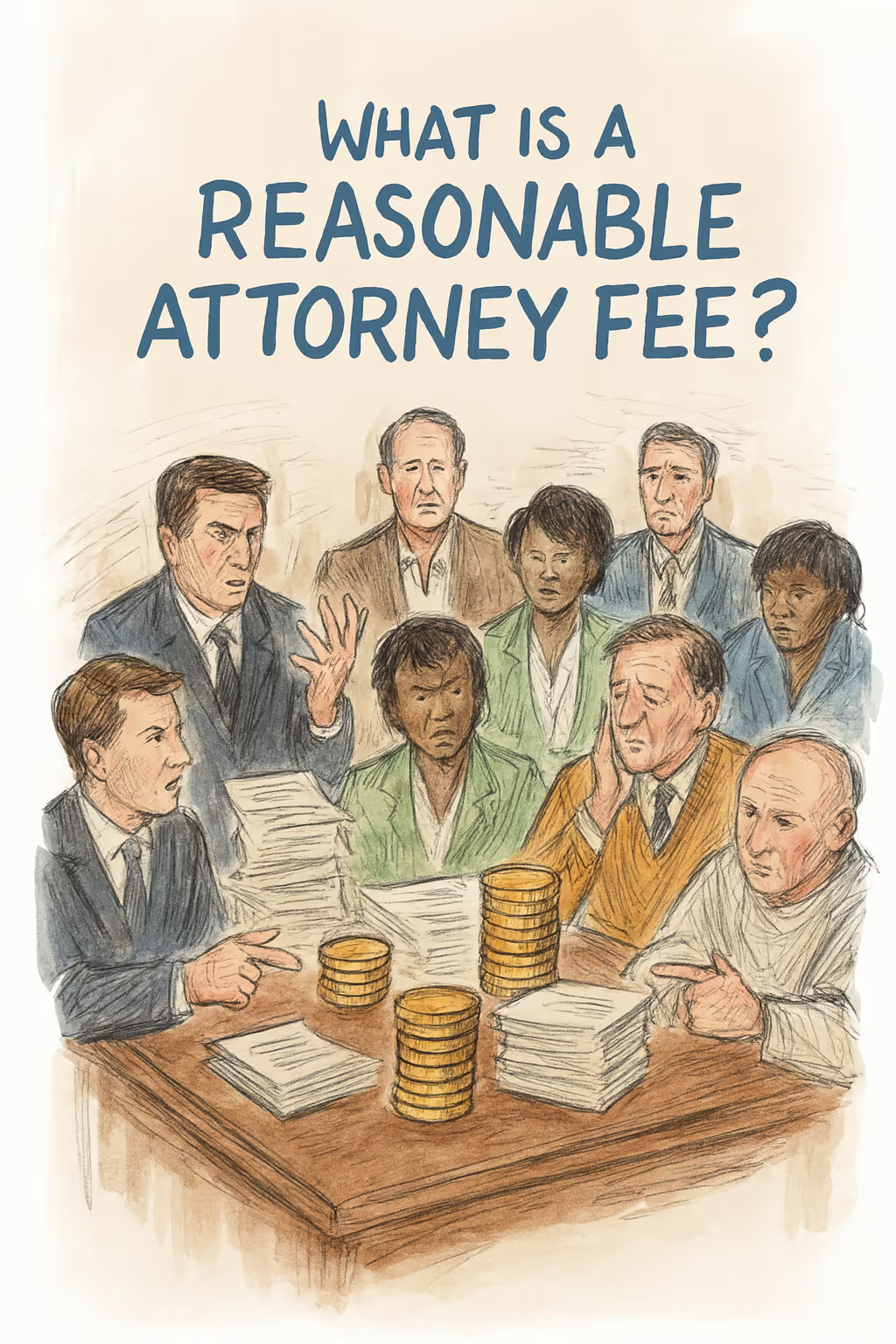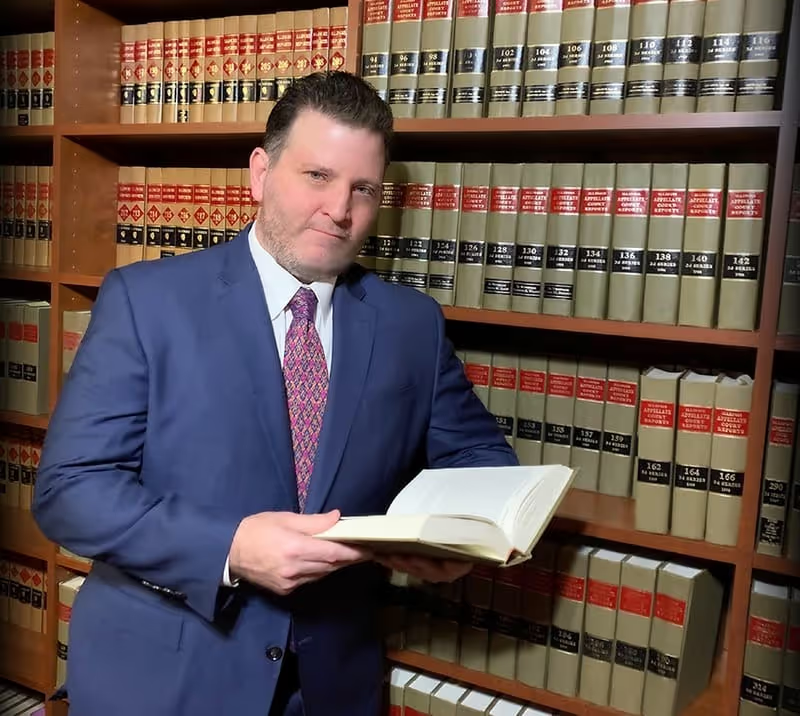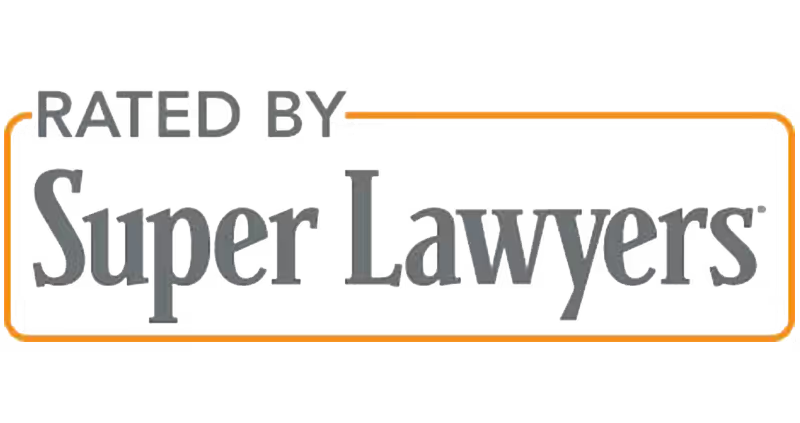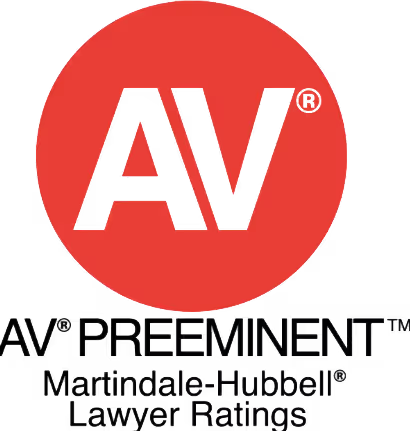Attorney's Fees and Contracts
I have litigated and/or been involved in hundreds of disputes involving the amount an attorney charged a client for attorney fees. I have only helped clients and have never represented attorneys in such disputes. I have been asked more times than I can remember: what is a reasonable amount of attorney's fees that my attorney can charge me? This is not an easy question to answer because it depends upon many factors, including the type of agreement entered, what the client agreed to in the contract, and Illinois law governing reasonable attorney fees.
I will discuss the types of fee agreements and provide helpful advice to clients about each type of fee agreement. I will then discuss the types of retainers that are available to clients and provide some helpful advice about each type of retainer. I will then discuss and provide legal authority to establish that no matter what type of arrangement a client has with an attorney, all attorneys' fees must be reasonable. Finally, I also provide numerous tips for clients who are involved in a dispute with an attorney about the amount of attorney fees an attorney charges.
Types of Fee Agreements
The first thing to consider when determining the amount of attorney's fees and whether the amount charged by the attorney is permitted under Illinois law is the type of agreement that was entered by the attorney and the client. The amount an attorney charges a client is generally governed by the agreement between the attorney and the client. The fee agreement between the client and the attorney will identify if the client has agreed to pay by the hour or if the attorney fee is contingent upon the outcome of the case or involves a flat fee, or the attorney's fee may involve a hybrid situation that combines some of the above.
Hourly Fee Agreements
An attorney and client may enter an agreement that requires the client to pay for the attorney's services by the hour at a certain hourly rate. An hourly rate type of fee agreement can be written or oral or implied in law. Importantly, a client should be aware that even if no written agreement exists stating the hourly rate to be charged, an attorney can still seek payment from the client if the attorney can establish that some type of oral agreement was entered, or the attorney may be able to recover attorney fees that are implied in the law under what is called a quantum meruit theory that is based upon equitable principles and the fact the attorney provided some benefit to the client.
It is imperative that a client is very careful about what is said to an attorney and what is asked of an attorney because I have seen numerous unscrupulous attorneys take advantage of clients by performing all sorts of unnecessary legal work that was not requested by the client. My advice to all clients is to tell the attorney you always want a written retainer agreement that identifies an agreed upon hourly rate and the scope of what legal services will be provided. It is important that the written fee agreement identifies the hourly rate, and you should ask the attorney to explain why the attorney believes that the hourly rate agreed upon is reasonable under the circumstances. A professional attorney is always willing to discuss the fees charged and will not get upset.
It is also extremely important for a client to make sure that any written fee agreement does not state that any fee disputes will be resolved by arbitration or mediation or other out of court procedure. Arbitration, mediation, or other types of out of court procedures all favor attorneys, they waive the right to a jury, and most decisions are made by other attorneys. A client always wants the ability of a jury to decide any disputes with an attorney and not an attorney or a judge or retired judge because they favor attorneys and are not sympathetic to clients disputing attorney fees.
Flat Fee Agreements
A flat fee agreement between an attorney and a client is an agreement that a certain amount will be paid for the legal services provided. Flat fee arrangements are most commonly used for real estate closings, bankruptcies, incorporation of legal entities, criminal or traffic matters, drafting of contracts, or even for litigation of a claim. Flat fee contracts can be oral or in writing. A client should ensure that all flat fee contracts are in writing so there is no confusion.
A lawyer earns a flat fee by performing the services for which the fee was charged. A flat fee is not a success fee. A lawyer may earn a reasonable flat fee even if the representation is not as advantageous or beneficial as the client would have hoped, as where, for example, the lawyer loses the case for which the fee was paid through no fault of her own. A flat fee is a fee fully paid in advance for legal services to be rendered in the future. A standard flat fee is intended to be the maximum fee charged to the client for the matter agreed upon. The lawyer must perform the associated legal services to earn the flat fee.
Contingency Fee Agreements
A contingency fee agreement between an attorney and a client is a legal arrangement where the attorney's fees are based upon the success of the case. Specifically, the attorney only receives payment if the client successfully secures compensation through a settlement or a judgment. This structure allows individuals to obtain legal representation without the financial burden of upfront legal fees. The core principle of a contingency fee agreement is "No Win, No Fee."
Contingency fees are calculated as a predetermined percentage of the final settlement or judgment obtained for the client. Common percentages generally fall between 33 percent for simple cases like personal injury cases and up to 40-50 percent for complex cases like legal malpractice cases or some medical malpractice cases.
Contingency fee agreements are common in personal injury cases from car crashes, slip and falls, product liability, and medical malpractice cases. Pursuant to Rule 1.5(e) of the Professional Rules of Conduct governing attorneys, contingency fees cannot be charged to a client in a divorce case or a defendant in a criminal case. Pursuant to Rule 1.5, all contingency fee agreements must be in writing. If an attorney attempts to collect a contingency fee that is not in writing, a client can object and prevent the attorney from collecting the contingency fee. The attorney may still be able to recover attorney fees, but the attorney will be limited to a recovery that is based upon the hours of work provided times a reasonable hourly rate.
In Illinois, contingency fees are governed in general by Rule 1.5 of the Rules of Professional Conduct. Contingent fees, like any other fees, are subject to the reasonableness standard of paragraph (a) of this Rule. In determining whether a particular contingent fee is reasonable, or whether it is reasonable to charge any form of contingent fee, a lawyer must consider the factors that are relevant under the circumstances.
Monies and/or Retainers Paid to Attorneys
For years, lawyers seeking to secure payment have requested retainers or monies paid by clients. Clients wishing to guarantee a favored lawyer's availability to assist them in anticipated transactions or expected litigation have long agreed to pay retainers as a means of locking up their representation.
Engagement Retainer
In Illinois, the Illinois Rules of Professional Conduct has defined three types of retainers. The first retainer is known as an engagement retainer, which has also been described as a "general," "classic," or "true" retainer. The engagement retainer is a fixed sum of money paid by a client to the lawyer to ensure a lawyer's availability during a specified period of time or for a specified matter. Funds received as an engagement retainer are earned when paid and immediately become property of the lawyer, regardless of whether the lawyer ever actually performs any services for the client. An engagement retainer must be reasonable in amount, given the length of time covered, the nature of services to be provided, and the experience and reputation of the lawyer involved. Engagement retainers are generally disfavored and must be clear that it is not a pre-payment for services to be rendered.
Security Retainer
A security retainer is the second type of retainer defined by the Illinois Rules of Professional Conduct. A security retainer is an amount of money, deposited with an attorney to secure payment of fees for services that the attorney expects to render on behalf of the client in the future. Security retainer funds remain the property of the client until the lawyer has performed the services for which payment is due. Until that time, security retainer funds must be maintained in a client trust account, and a lawyer may not charge such funds against payment due from the client except as fees are earned or expenses incurred. At the conclusion of representation, any unused security retainer funds must be returned to the client.
Advance Payment Retainer
An advance payment retainer is the third type of retainer defined by the Illinois Rules of Professional Conduct. It is a payment to an attorney for services to be performed in the future. Unlike a security deposit, advance payment becomes the property of the attorney upon payment to the attorney. Unless otherwise agreed by the client and the attorney, advance payment retainers are refundable to the extent they have not been earned.
Advance payment retainers have numerous restrictions set forth in Rule 1.15(c). If an attorney seeks an advance payment retainer, the attorney must include the following in a written fee agreement:
(1) the special purpose for the advance payment retainer and an explanation why it is advantageous to the client;
(2) that the advance payment retainer will be the property of the lawyer upon payment, and that it will be deposited in the lawyer's general account;
(3) the manner in which the retainer will be applied for services rendered and expenses incurred;
(4) that any portion of the retainer that is not earned or required for expenses will be refunded to the client;
(5) that the client has the option to employ a security retainer; provided, however, that if the lawyer is unwilling to represent the client without receiving an advance payment retainer, the agreement must state and provide the lawyer's reasons for that condition.
All Attorney's Fees Must Be Reasonable
In Illinois, no matter what type of fee arrangement is agreed upon, all attorney's fees must be reasonable. A seminal case that discusses the factors courts should consider to determine if attorney's fees are reasonable is Kaiser v. MEPC, 164 Ill.App.3d 978 (1987). No exact formula exists in determining a proper attorney's fee award; while each factor enumerated in the professional rules is relevant, no single factor is conclusive or dispositive. A trial court will award only those attorney's fees that are reasonable, consisting of reasonable charges for reasonable services. Reasonableness of attorney's fees requested is within the discretion of the trial court.
The amount of an attorney's fee award is left to the discretion of the trial court for good reason: its superior understanding of the litigation and the desirability of avoiding frequent appellate review of what essentially are factual matters. In awarding attorney's fees, the court must look to the attorney's skill and standing, the nature of the controversy, the novelty and difficulty of the questions at issue, the importance of the subject matter, the degree of responsibility involved in the management of the case, the time and labor required, the usual and customary charge in the community, and the benefits resulting to a client. Slice Coal Fired Pizza Company v. Metropolitan Square Plaza, LLC, 2025 IL App 221279.
The benefit conferred on the client, therefore, is only one of the factors a court is to consider in assessing fees. Furthermore, the court should consider whether there is a reasonable connection between the fees and the amount involved in the litigation. These factors are not exhaustive. For example, a court should use its own knowledge and experience when making a reasonableness determination, and a court of review may not reverse an award of attorney's fees merely because it might have reached a different conclusion. When a trial court reduces the amount requested in a fee petition, the court's ruling should include the reasons justifying a particular reduction.
Rule 1.5 of the Rules of Professional Conduct
Rule 1.5 of the Rules of Professional Conduct also governs the reasonableness of attorney fees in Illinois and states:
Fees
(a) A lawyer shall not make an agreement for, charge, or collect an unreasonable fee or an unreasonable amount for expenses. The factors to be considered in determining the reasonableness of a fee include the following:
(1) the time and labor required, the novelty and difficulty of the questions involved, and the skill requisite to perform the legal service properly;
(2) the likelihood, if apparent to the client, that the acceptance of the particular employment will preclude other employment by the lawyer;
(3) the fee customarily charged in the locality for similar legal services;
(4) the amount involved and the results obtained;
(5) the time limitations imposed by the client or by the circumstances;
(6) the nature and length of the professional relationship with the client;
(7) the experience, reputation, and ability of the lawyer or lawyers performing the services; and
(8) whether the fee is fixed, contingent, or some type of retainer.
Tips for Clients Disputing Attorney Fees
I have litigated numerous attorney fees disputes over the last 25 years, and here are some helpful tips of things to look for if you want to dispute the amount of attorney fees or are in a fight over the amount of attorney's fees you have been charged.
1. Object Timely
If you receive a bill from an attorney, you should review it and raise objections or raise questions within 30 days of receipt of the bill. If you do not raise objections or ask questions, you could possibly waive your right to object later. Many attorneys will attempt to use a theory of recovery called "Account Stated" if you do not make timely objections. An Account Stated theory is a cause of action that states if a party renders an account, or in other words sends you a bill, and you do not object within a reasonable amount of time, you have admitted that the amount stated in the bills is accurate and reasonable. If you do not object, at least write an email to the attorney generally stating that you object and are not waiving any rights. This should protect your rights and still maintain a good relationship with the attorney.
2. Don't Be Afraid
Do not be afraid to raise objections or concerns about the amount of the bills or the time the attorney claims to have spent. Attorneys make mistakes in time keeping all the time, and honest and reputable attorneys have no problem addressing the bills. In fact, all attorneys who worked for defendants or insurance companies or large corporations have been billing clients and discussing the amount billed their entire career. In fact, if any attorney gets upset about discussing a bill, you probably have the wrong attorney.
3. Check the Hourly Rates Charged
Review the hourly rate charged for each and every entry because attorneys make many scrivener mistakes in billing. Also, review any written agreement or retainer agreement you have to identify what rate the agreement states will be charged to make sure it matches the rate charged in the bill. Many times attorneys will increase their billing rate as time passes and will not inform the client. If the billing rate increases without the client being informed, then you should object to the increased hourly rate charged.
4. Check for Block Billing
Block billing is not allowed under any circumstance. Block billing attorney fees refers to a practice where multiple tasks are grouped together into a single time entry for billing purposes. This method can lead to confusion and lacks transparency that detailed billing provides.
An example of block billing is as follows: Sept 25, 2025 - 3.0 hours - talk to client, write brief, call opposing attorney. Instead of itemizing each activity separately, attorneys wrongfully combine various tasks into one block of time with a general description.
The proper way to bill is:
- September 25, 2025 - 0.60 - talk to client about motion to dismiss
- September 25, 2025 - 2.0 - draft brief about motion to dismiss
- September 25, 2025 - 0.40 - talk to opposing counsel re: motion to dismiss
5. Review Amount of Time Charged
Review the amount of time charged by an attorney for each task because they sometimes do not bill in tenths of an hour. Billing should be to a tenth of an hour and should not be rounded up. Also, look to see how long certain legal work that is billed took and consider whether the time spent is excessive.
6. Look for Legal Work That Is Unnecessary
The best argument to make in many cases is that certain work billed was unnecessary. Just because a bill states that an attorney spends time on your case does not mean that the attorney is entitled to recover monies for that time. Many times attorneys will needlessly increase the amount of time spent on a case filing or pursuing motions or other relief before the court that does not advance the interest of the client. Anytime you lose a motion or the court fails to provide the relief a client sought, the client should consider objecting to any time spent on the matter because it was unnecessary. The argument that time billed was unnecessary can be the strongest argument a client can make in most cases, but the client needs to study the bills so a coherent argument can be made.
